Netflix is one of the largest streaming services out there, and it has a lot of content to choose from and sift through. Often, people will find themselves stricken with decision-paralysis as they endlessly scroll through the titles on offer looking for the perfect thing to watch. I sometimes find myself in the same position, but rather than just mindlessly sitting through The Office or Friends again I decided to implement a different solution: J-Dramas.
J-Dramas are Japanese drama(or comedy-drama) series, usually about 9-10 episodes in length, and last for one season only. They’re essentially like mini-series. This is part of what draws me to them, since it’s never a huge time-investment (compared to a multi-season US show, for example), and there’s no danger of the story being incomplete thanks to a cancellation as it’s all one-and-done.
They come in many forms, from cop series to mysteries to romance to family dramas, so there’s plenty of variety. The following are all the J-Dramas I’ve watched so far on Netflix (and are still available there, at least on the UK service, at time of posting), ordered from most to least favourite. I will also update this whenever I watch a new one, and fit it in its rightful place on the list. If you would like to recommend me any J-Drama in particular, just leave a comment or get in touch with me on BlueSky or by email! Here are, from least to most favourite, the best J-Dramas on Netflix! Since there are 32 (and counting!) I thought it best to split this up into multiple pages. This is 32-20, click here for 20-11 and 10-1 (links also at the bottom of this page).
32) He’s Expecting (2022)

My least favourite of the shows I’ve watched so far also happens to be the shortest series of them all. He’s Expecting is about exactly what you’d…expect. An advertising executive working for a big firm in the city ends up becoming pregnant, and has to deal with all the associated pressures, pitfalls, and social mores that come along with that, only this time it’s from a male perspective.
There’s no explanation really on how he became pregnant, but that’s fine. It’s basically just accepted in this world that, although very rare, men can sometimes become pregnant instead of women. The problem I had with the show is that there’s not so much meat on its bones. It’s fine, it shines a light on various problems women in the workplace and in society at large have to face, especially when pregnant, but the characters themselves are rather flat. The series is short though, so it’s an easy enough watch. Probably I’d only really recommend it if you’re looking for something to fill a few hours with and find the concept interesting.
31) House of Ninjas (2024)
This one is probably unique for this list, as it’s much more action-orientated than any of the others. House of Ninjas is about a family of ninjas who, after a tragedy in their last mission, have lied dormant for some years. However, now the family is being pressed back into service to combat an upcoming threat.
The action in this is pretty good, but really the best scenes in this show are the all-too-infrequent scenes between the grandmother character (played by Juzo Itami regular Nobuko Miyamoto) and her grandson. Otherwise the show is not all that interesting, just sort of standard action fare. If you like that sort of thing you’ll probably enjoy this, but if you were hoping for romance or really engaging characters you’ll not find them here. The characters and performances are all fine, there are just very few that live long in the memory.
30) Ripe for the Picking (2024)
Ripe for the Picking is about Maiko (Koharu Kusumi), a salarywoman who has just entered her 30s, but has never had a sexual relationship. She feels like it’s about time that she rectifies this, and longs to enjoy romance in the same way her friends have been able to, but has to navigate the complicated world of dating and relationships to achieve her goal.
Despite its somewhat creepy name, it’s quite a sweet show and deals with its subject with a light touch. The show also touches on the problems that some of Maiko’s friends and colleagues face in their own romantic lives such as a driven career woman who has been neglecting her husband, or a younger colleague who judges potential partners on looks alone, even over less attractive options who are a better match in personality. The central relationship though is between Maiko and shy photocopier repairman Senri (Taiki Sato), and it’s quite sweet if a little juvenile (to be expected given how inexperienced they both are, I suppose). I think the side stories were probably more interesting to me, but the show also probably spreads itself too thin trying to cover too much since it’s a shorter show (only 9 episodes at less than minutes per episode). That brevity helps you power through this though, and if you’re not interested in one plotline there’s a good few others to try with so I’m sure you’ll like at least one of the stories in this, even if it’s only a little bit.
29) From Me To You (2023)

Based on a manga series, From Me To You is the story of high school student Sawako Kuronuma (Sara Minami). Nicknamed Sadako by her classmates (thanks to a passing resemblance to the girl from Ringu who crawls out of the television), Sawako is unpopular, awkward, and largely ignored. However, one of the more popular boys in her class, Shota (Oji Suzaka), takes notice of her and begins talking with her, which in turn causes other members of her class to accept her as well. As the series progresses, we watch Sawako navigate her newfound friendships and the various romances and dramas of high school, gradually being drawn out of her shell.
While I did think the series was quite nice, on the whole, it still did feel a bit lacking. Firstly, it didn’t really feel like they did very much to establish that Sawako was an outcast. This means that when she does become accepted, it doesn’t really feel like all that much has changed, or even that much has happened at all. It also feels very sudden, rather than a gradual move from class outcast to “ordinary” student, accepted by all. The two leads, Sawako and Shota, also didn’t strike me as being especially interesting. Mostly they just seemed like nice people, but boring. The romantic element isn’t all that strong, but I suppose that makes sense given Sawako’s mostly meek disposition. In truth, the stories of the supporting characters in this drama were much more engaging than anything relating to Sawako or Shota, but these were a much smaller part of the show so I didn’t get to enjoy any of that for too long.
I won’t be revisiting this one. Apparently there’s an anime (also on Netflix!) which is supposed to be better, but I don’t know if I’ll ever bother with it. The fact there are more episodes (and thus more time to establish characters/setting) might alleviate some of the problems I had with this live-action adaptation, but I don’t imagine I’ll ever find out.
28) Good Luck!! (2003)
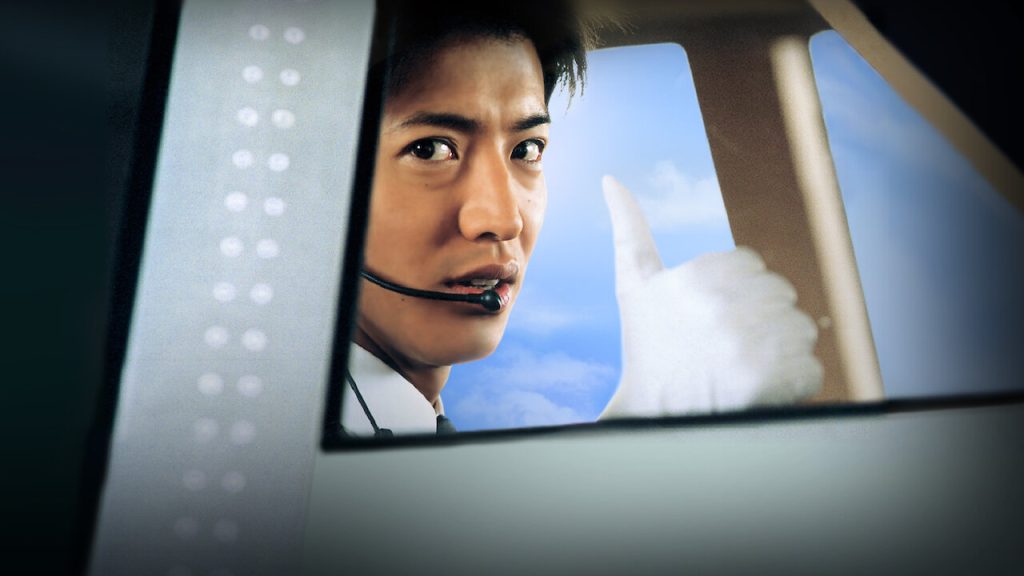
Good Luck!! is a workplace J-Drama, and (so far) has been my least favourite of this genre. It’s still alright, and had some nice moments and enjoyable characters in it, I just didn’t find the setting to be that compelling.
The show follows aspiring pilot Hajime (Takuya Shimura), who is currently working as a co-pilot for ANA (All Nippon Airways). The show also features various other air staff such as stewards and stewardesses, other pilots, and ground crew. The relationships between the characters are once again the most important part of the show, and there are some enjoyable ones in here, however the setting is not very interesting and the reverent attitude towards the work itself wasn’t very appealing to me. The least appealing thing in the show for me is the character of Captain Koda, a strict and entirely unforgiving pilot who delivers his orders with no warmth or understanding, and is generally unlikable. Sadly, the show always decides to prove him to be completely correct in whatever decisions he makes, which seems to condone the awful way he acts towards his staff. It’s just not a type of character I like at all, and would prefer he was taught a lesson in empathy and understanding instead of just giving orders to people in a demeaning, abrupt way, acting entirely like a strict schoolmaster to be obeyed and never questioned rather than as a leader, the captain of a team and part of a well-oiled machine.
Still, it wasn’t a bad way to pass a few hours, and the theme song by Tatsuro Yamashita (Ride on Time) is an absolute banger.
27) Public Affairs Office in the Sky

Public Affairs Office in the Sky follows domineering and relentless TV reporter Rika Inaba (Yui Aragaki), who will stop at nothing to get the story for her station, Teito TV. However, her tenacity gets her in trouble, and at the beginning of the series she has been transferred to the information department of the station, working on variety shows instead of the news, where it’s thought she’ll cause less trouble. As part of this new work, she’s sent to liaise with the public affairs office for the Japan Air Self-Defense Force (JASDF) in order to gather information about them and potentially create content for her station’s variety show. Though this work she garners a newfound appreciation for the work done by the JASDF, and becomes close to the staff in its public affairs office, particularly Daisuke Sorai (Go Ayano) with whom a mutual spark of romance ignites and begins to gather steam.
Overall this was fairly low down in terms of work-place based J-Dramas, for me. I just don’t really have any interest in military affairs at all, and often this show feels like propaganda for the JASDF (which, I mean, it definitely and unashamedly is). However, anytime a character was extolling the virtues of the work they do, it just made me completely tune out. There were still some nice character moments (basically none of which were based on the work they do), and I did enjoy Inaba’s growth as a producer in her new role at her TV station, and I wish there was more focus on that. I also found the male lead extremely dull (both in character and performance). Yui Aragaki was fairly charming, but less so than in The Full-Time Wife Escapist, and there’s not a great deal of chemistry between her character and Sorai. Overall, a romance that falls flat and a workplace that isn’t very interesting (which the show serves as a naked propaganda piece for), but there are a good few enjoyable characters and it can be nice to watch them interact with each other about non-JASDF related things. Not one I’ll ever revisit, sadly.
26) Unnatural (2018)
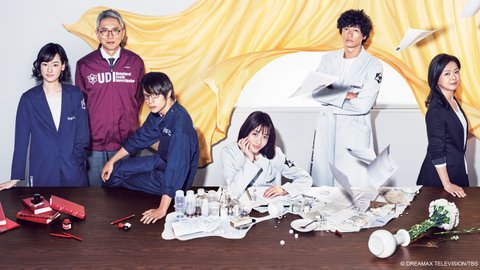
Unnatural is probably the closest thing to a straight-up police procedural of all the shows mentioned so far, which is probably also why it’s making its appearance towards the bottom end of the list. The setting for Unnatural is the UDI (Unnatural Death Investigation) Lab, and the series follows the cases taken on by the small team of pathologists, doctors, and technicians who work there. In each episode, the lab takes on a different case by conducting an autopsy on a new body in order to determine the cause of death and, where applicable, find the culprit and bring them to justice. There is also an over-arcing mystery that progresses over the series as a whole, and forms its conclusion.
There isn’t really any romantic element to this series at all, which is probably for the best given it’s a fairly serious workplace, and the series itself has a largely serious tone too. There are still moments of relief sprinkled throughout though (like a lab technician who is obsessed with Moomins), and the characters are fairly engaging. It’s not really my sort of series, but I was kept going by the characters and their interactions with each other. For me, the mystery and criminal elements were mostly secondary. Again, one I was fine with while watching, but can’t see myself revisiting. If you do like crime shows in general though, you’ll probably have a good time with this one.
25) Tokyo Love Story (1991)
Tokyo Love Story mostly feels like a curiosity, a time capsule, a sort of hint at what’s to come. Kanji (Yuji Oda) moves from Ehime to Tokyo after college to begin work at a sports company, where he meets and becomes close with Rika (Honami Suzuki). The show follows the pair as they navigate their relationship, and the obstacles that they have to deal with along the way.
The music in this is great, and Rika is a really endearing character played wonderfully by Honami Suzuki. It’s also very appealing in a nostalgic sort of way, seeing what Tokyo was like in the beginning of the 90s and enjoying the vibe of that world that existed before widespread internet, smartphones, and social media. However, there is the small issue of the other characters not being very interesting. Kanji’s old school friends Kenichi (Yosuke Eguchi) and Satomi (Narimi Arimori) have also moved to Tokyo, and with Kanji’s long-held love for Satomi it creates a sort of love quadrangle. However, there’s nothing likeable about Kenichi who is mostly just a womanising arsehole, and there’s not really much to Satomi at all. This makes it hard to care about either of them, and it certainly makes it infuriating to watch Kanji put his relationship with Rika in jeopardy over all this nonsense. In this sense it feels like the later show Love Generation (not on Netflix, yet at least!) which came out a few years later and similarly featured a love quadrangle where one pair of characters was just utterly uninteresting.
I did find it worthwhile sticking with this show for the 90s vibes, the music, and for Rika, but it feels like a difficult one to recommend in any meaningful way. I heard that this was also remade recently as well, and that Kenichi is somehow even less likeable in the remake! Astounding stuff.
24) ISHIKO and HANEO: You’re Suing Me? (2022)
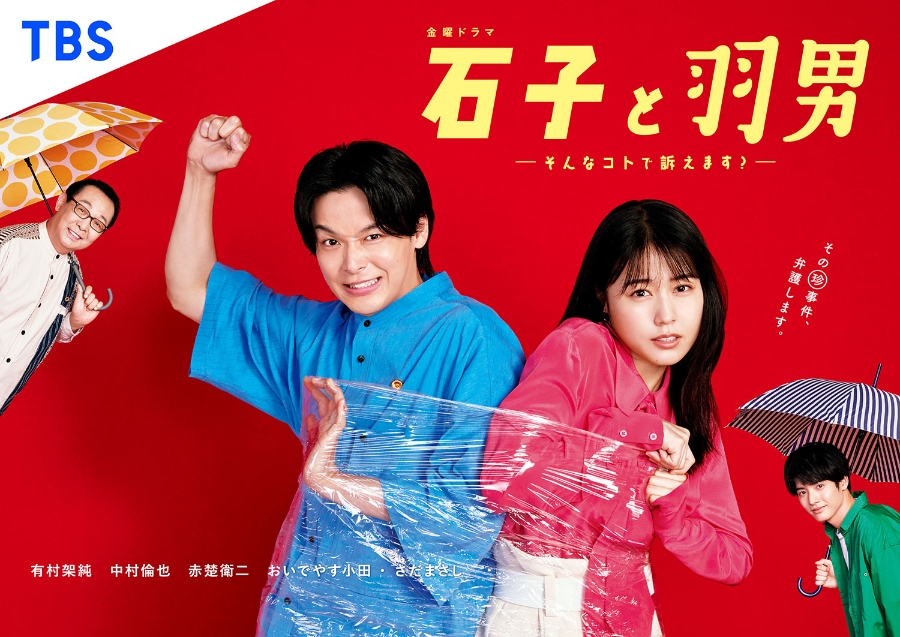
ISHIKO and HANEO: You’re Suing Me? is another work-place J-Drama, but this time the setting is a small-town law office. The central pairing of the show is paralegal Shoko Ishida (Ishiko, played by Kasumi Arimura) and a somewhat unconventional lawyer with a photographic memory, Yoshio Haneoka (Haneo, played by Tomoya Nakamura). The pair work at the law office owned Ishiko’s father, who hires Haneo to work for him in the series very first episode. The show follows Ishiko and Haneo as they help local residents with various court cases and problems with the law they might have, and through working together we see how their relationship grows and develops, and learn more about each character.
I appreciated that the cases were all fairly low-stakes and at a local level rather than being monumental, career-defining juggernauts, as this allowed the characters more freedom to interact rather than being hamstrung and dominated by the complexity and size of their cases. Not that the cases they take on are unimportant to those involved, but still they are definitely of a smaller-scale. They do highlight various cultural and societal issues in Japan (with some stats/info at the end of each episode), but this seems like a small part of the show, just a little added flavour to the stories rather than being the whole story themselves.
There were some little, fun touches that I liked, like the small-town being known for its large portions meaning that any time the characters went to eat out or ordered delivery they’d each end up with an outrageous mountain of food in front of them. The show is also quite light-hearted, and doesn’t take itself too seriously (which helps given the largely small-scale of the cases). I had a nice enough time learning more about these characters, and spending time with them. There is a small romantic element to the show as well, but it’s mostly downplayed and the professional relationships are more important. Another one that was just fine, but not much more.
23) An Incurable Case of Love (2020)
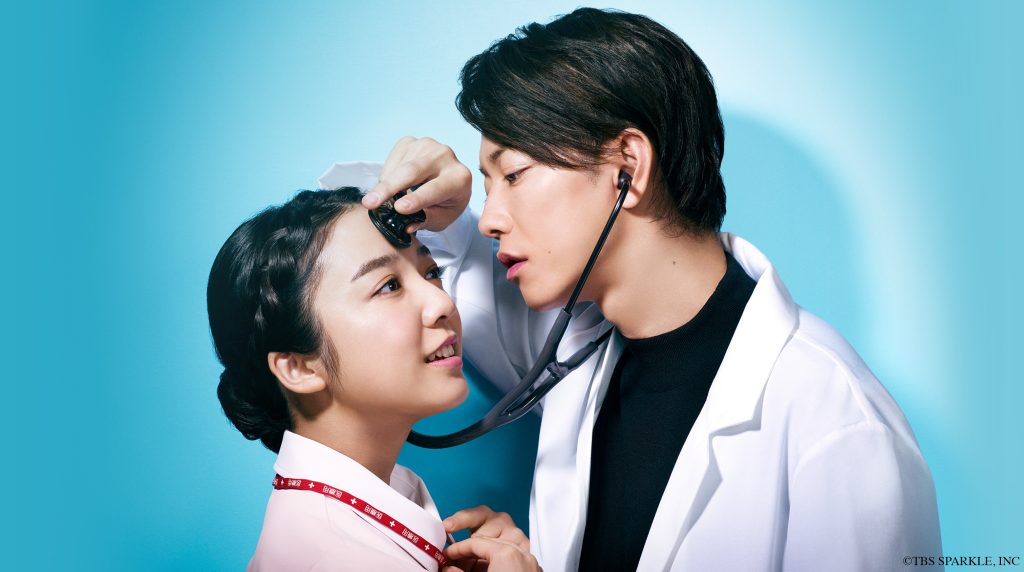
In An Incurable Case of Love, a teenage student named Nanase (Mone Kamishiraishi) is visiting the city when an elderly person collapses in the street in front of her. She’s alone, but manages to work out where she is and call an ambulance while comforting the injured person as best she can. Suddenly, from a side-street seemingly out of nowhere, a handsome man appears to take control of the situation. He reveals himself to be a doctor, Kairi Tendo (Takeru Satoh, again!). He helps the injured party, and kindly reassures Nanase that she has done well in a very difficult situation, before departing in the back of the ambulance to continue his work at the hospital. Nanase is instantly smitten, declaring herself to be in love with Dr. Tendo, and resolving to study hard at school and become a nurse. A few years later, that’s exactly what she has done, and begins work at Dr. Tendo’s hospital. However, that dreamlike vision she had of Dr. Tendo is quickly shattered when she finally meets him once again, and finds him irritable, taciturn, and blunt. The series follow Nanase as she navigates her first year as a nurse, and her relationship with Dr. Tendo as well as the many other staff members (and patients) of the hospital.
It’s a series with some serious moments, but is largely light-hearted. That aforementioned stoic charisma serves Takeru Satoh well in this show, helping give the impression that there might be a soft centre under the gruff exterior. The show belongs to Mone Kamishiraishi, really, who puts in an incredibly endearing performance as the earnest and idealistic Nanase, who strives to fight against the odds to achieve her goals (both professional and personal). There is also a fairly large case of supporting characters, and it’s easy to find yourself rooting for each and every one of them. In summary I’d probably describe the series as “nice”, but not something that sticks long in the memory. I’d maybe be tempted to revisit these characters if there was a TV special, but I doubt I’ll watch the series itself again.
22) Flower Shop Without Rose (2008)
Flower Shop Without Rose is a story of a single father and his daughter. Eiji (Shingo Katori) runs a flower shop, and lives above it with his daughter Shizuku (Yuuki Yagi). One rainy day, a blind woman named Miou (Yuko Takeuchi) uses his shop for shelter, and the two eventually grow close.
There’s a small community around the flower shop that we become ingratiated in, including a cafe owner, a school teacher, and a local retired woman who taught Eiji much of what he knows about flowers. It’s in the interactions between these characters and Eiji and Shizuku where the show is at its best. Outside of that, there’s a mystery element (always my least favourite part of any show!), and Eiji is at points far too nice. Sometimes it feels like he only exists to be a doormat. There are some twists and turns in this show that I didn’t really care for at all, but I like Eiji and Shizuku enough to stick with it and overall found my viewing of the show to be a positive experience. I would change some things about this, but it’s still decent.
21) Why Didn’t I Tell You a Million Times? (2023)
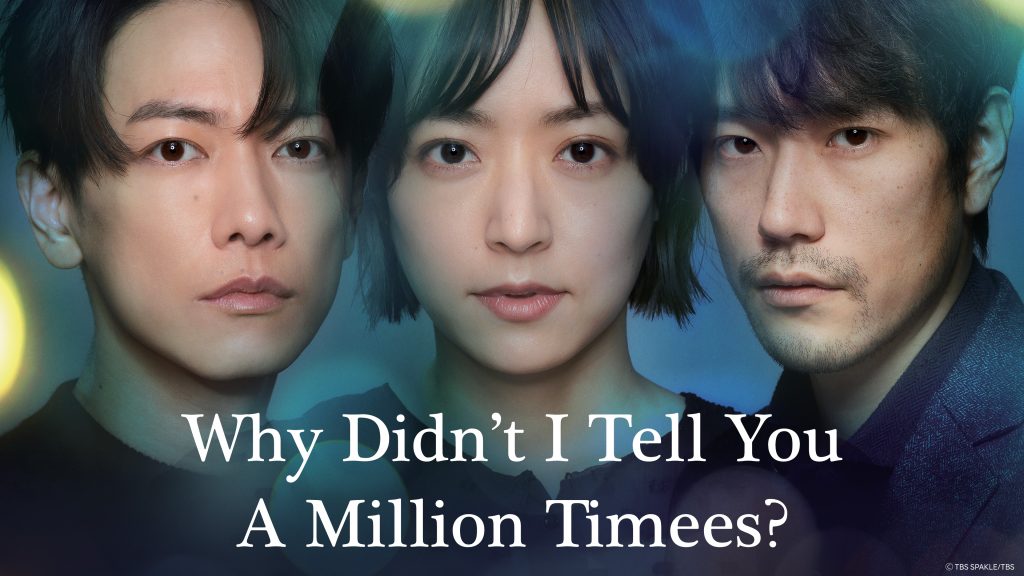
Why Didn’t I Tell You a Million Times? begins with Naoki Torino (Takeru Satoh) waking up in his apartment, with no memory of how he got there or anything that has happened to him recently. He soon figures out that no one can see him or hear him, and begins wandering the streets. Eventually, a police officer with latent paranormal abilities named Yuzuru (Kenichi Matsuyama) notices him, and Naoki enlists his help to untangle the mystery of what has happened to him.
While it is a murder mystery, whodunnit sort of show, there is also a strong romance at its core. At the time of his murder, Naoki was in a relationship with Yui (Mao Inoue). The pair were childhood friends who lost touch, but later reconnected as adults and fell in love. Naoki, using Yuzuru as a sort of conduit, communicates with Yui from beyond the grave in an attempt to lend her some comfort, as well as figuring out what actually happened to him.
I’m not really a fan of whodunnits, so that aspect of the show was mostly lost on me, but I did appreciate the romantic core of the story and this is where I derived most of my enjoyment. Takeru Satoh has a kind of stoic charisma to him which is very powerful, and Mao Inoue’s performance opposite him did a great job in establishing their relationship as long-standing, deep, and unbreakable. The investigation itself is fine, but I was much more invested in the show’s explorations of grief and loss, both in the central pairing and in some of the (non-murder related) subplots which dealt with these themes.
I think if you like mystery and crime-related shows you’d probably enjoy this more than I did, but the romantic elements were enough for me that I still enjoyed it overall.
Links/Added Bits
As mentioned in the opening blurb, I will be updating this whenever I watch another J-Drama on Netflix. If you have any suggestions or recommendations, feel free to leave a comment or get in touch via my BlueSky or email! There was one J-Drama that I started but didn’t include on this list, as I only made it about an episode and a half in, which was called Dearest. The show seemed fine, but it was a crime/murder type show which isn’t really my sort of thing, so I gave up.
I also have a full ranked list of J-Dramas I have watched, which can be found on Letterboxd here.

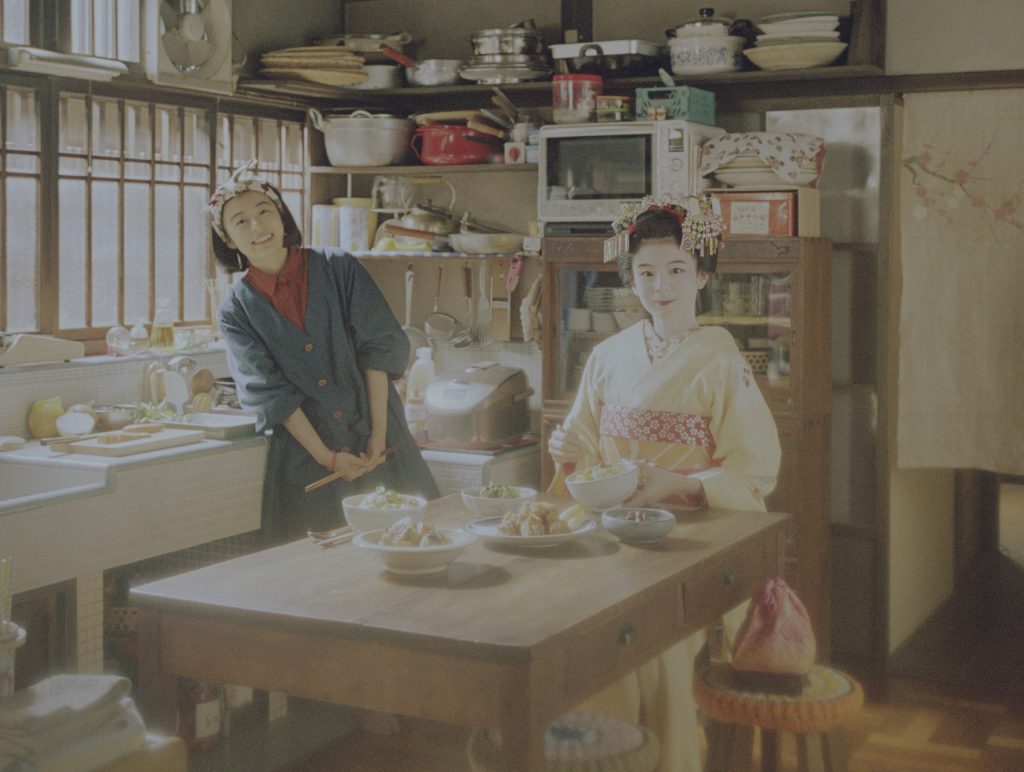




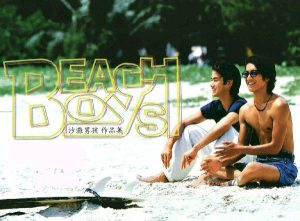









2 Responses